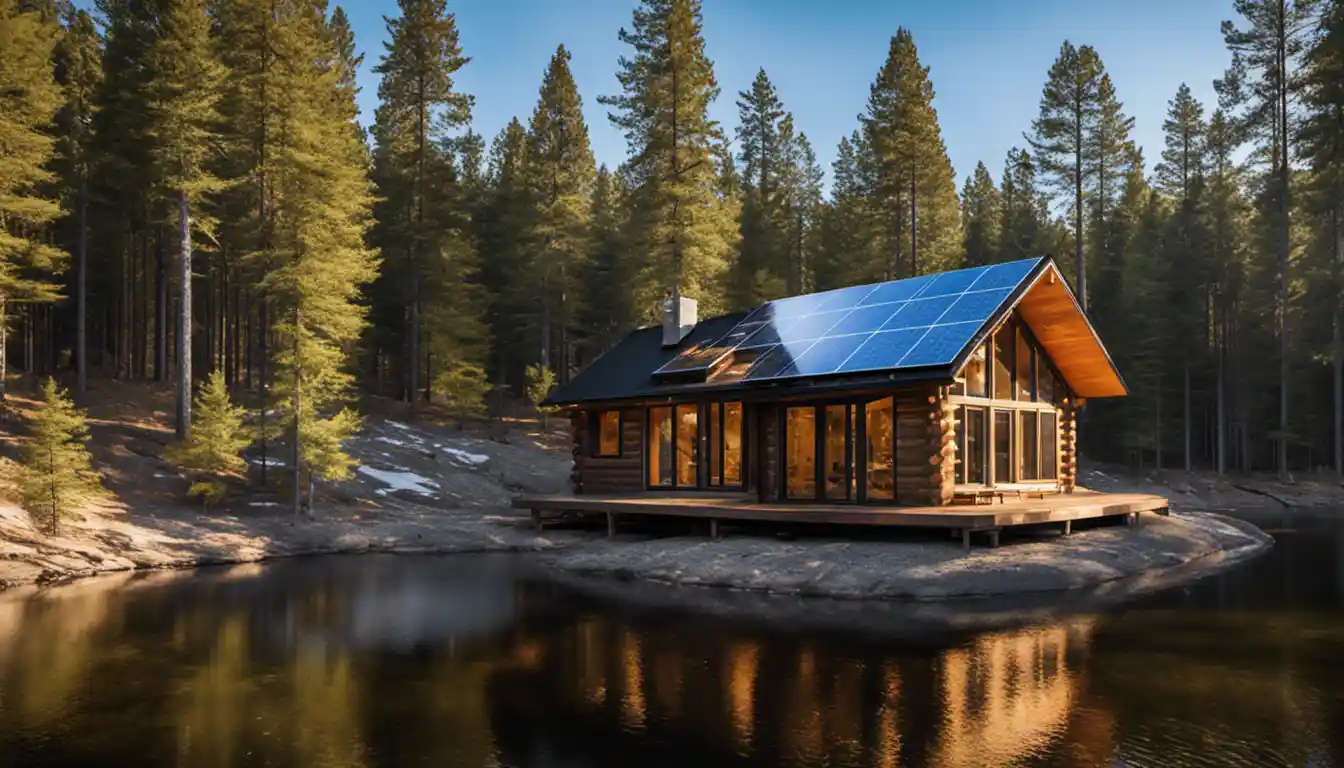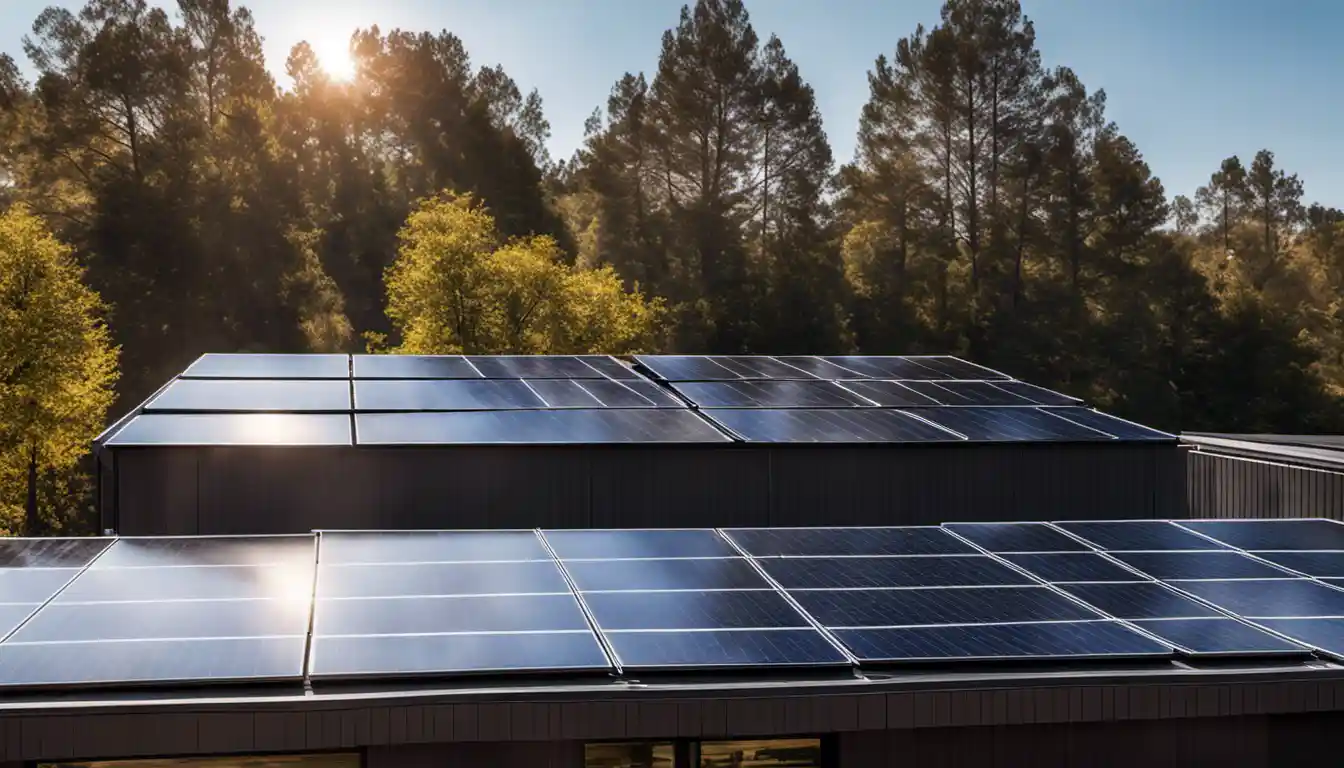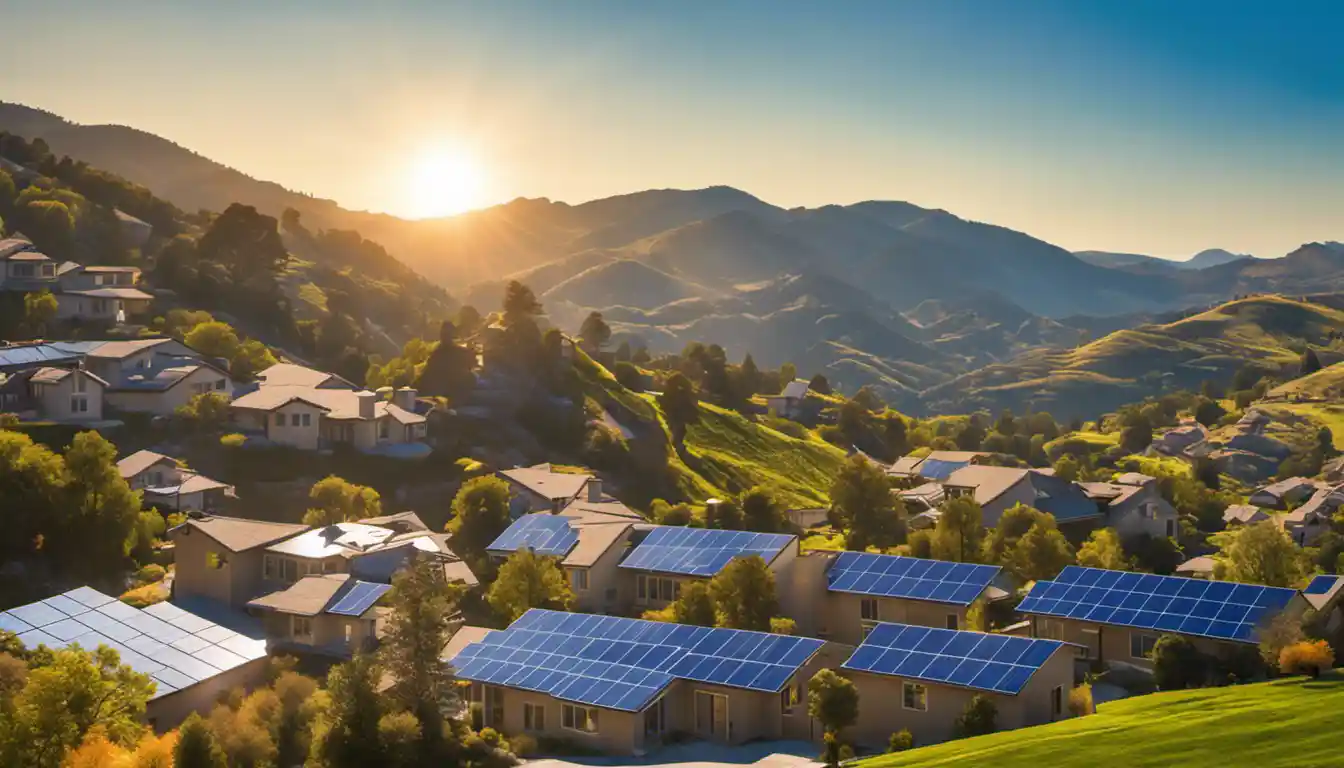Types of Solar Power Systems
There are three main types of solar power systems: Grid-Tie Solar Power Systems, which connect to the local utility grid and can earn you credits for excess power; Off-Grid Solar Power Systems, ideal for remote locations as they generate and store all their electricity; and Backup Solar Power Systems, which add batteries for power during grid outages or low solar production.
These systems cater to different energy needs and circumstances, offering advantages and disadvantages depending on your specific requirements.
Grid-Tie Solar Power Systems
These systems connect to the local utility grid, enabling you to draw power when your solar system isn’t producing enough, such as during the night or cloudy days. Conversely, when your solar system generates more than you need, the excess is typically sold back to the grid, often earning you credit to offset your energy costs.
Advantages of Grid-Tie Solar Power Systems
The two key benefits are saving on energy costs and earning potential. When your system generates excess power that feeds back into the grid, you can earn credits or even cash, depending on the utility company and region.
Disadvantages of Grid-Tie Solar Power Systems
Grid-tie systems rely on the grid to supplement their power. Unsurprisingly, if the grid experiences a blackout, your system will shut down too, to safeguard utility workers from electrical back feed.
See also: UPS With Solar Panels (Here’s Stable Power)
Off-Grid Solar Power Systems

Off-grid solar power systems are not linked to an electrical grid. They generate, store, and supply all the electricity requirements, making them perfect for remote locations.
Advantages of Off-Grid Solar Power Systems
Off-grid systems provide energy independence. Since you generate and store your electricity, power outages won’t affect you. It’s a great solution for remote or rural locations without access to a local grid. For more information on off-grid systems, check out our comparison of off-grid vs hybrid solar systems and on-grid vs off-grid solar systems.
Disadvantages of Off-Grid Solar Power Systems
The one drawback of off-grid systems is the high cost. Because they are self-sustained, they need substantial storage, often requiring a considerable investment in batteries and generators.
See also: Solar Panel Connection With UPS (Best Solutions)
Backup Solar Power Systems
A battery backup can be added to both grid-tie and off-grid solar power systems, providing backup power during grid outages or periods of low solar production.
Advantages and feasibility of adding battery backup to grid-tie solar power systems
Adding a battery backup to a grid-tie solar system dramatically increases the system’s reliability and independence. In a blackout, you won’t be left in the dark. You can also store surplus energy for later use, potentially saving or making more money.
Types of Solar Systems for Homes
When it comes to choosing a solar system for your home, don’t be dazzled by all the shiny options. Let’s dive into what they are and how they differ. To further illustrate the distinct differences, we invite you to explore the difference between on-grid and hybrid solar systems on our website.
Grid-Tied Residential Solar System

This system is, as the name suggests, tied to the residential grid. It’s ideal for urban and suburban households, allowing homeowners to save on their electricity bills.
Off-Grid Residential Solar System
Ideal for properties in remote areas where the electrical grid is unreliable or non-existent, the off-grid solar system is a real game-changer.
Hybrid Residential Solar System
A blend of the two previous systems, a hybrid solar system offers the best of both worlds. It operates on a grid but also features battery storage, giving it off-grid capabilities.
Factors Determining the Best Solar System for Homes

There are multiple factors when deciding on the best solar system for your home, including your location, average energy consumption, local utility rates, and financing options.
Solar System Requirements for Urban and Rural Residences
Urban residences generally find grid-tied solar systems more beneficial due to the easy access and connection to local power grids. In contrast, rural homes often lack reliable grid connectivity, making them ideal for off-grid systems.
Types of Solar Installations
Beyond residences, solar systems can also be installed for commercial, industrial, community, and utility purposes, with each type having its own range of considerations and benefits.
By understanding these “types of solar systems”, you will be better equipped to make informed decisions that can contribute positively to both your wallet and our planet. Start exploring your solar system options today!



